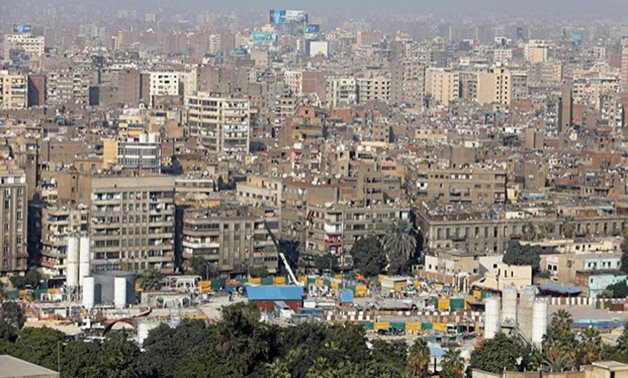
A general view of clustered buildings in Cairo, Egypt, January 28, 2018. REUTERS/Mohamed Abd El Ghany
CAIRO – 3 March 2022: IHS Markit Egypt Purchasing Managers’ IndexTM (PMI) recorded 48.1 in February 2022, compared to 47.9 in January.
The index came below the 50.0 neutral mark for the fifteenth month running and only fractionally higher than January's nine-month low of 47.9.
"The pandemic-led surge in input prices and the Omicron wave continued to derail Egypt's recovery in the first quarter of 2022, as the February PMI signaled a deterioration in non-oil economic conditions. Output, new business, employment and purchases were all down, with output falling at a fractionally softer pace than January's 19-month record,” Economist at IHS Markit, David Owen said.
He added that the Egyptian businesses continued to express concerns that the pandemic would constrain activity over 2022, particularly amid a slow vaccine rollout compared to other regions. Overall confidence fell to its lowest level in the series history, with just 11% of firms reporting a positive outlook for the upcoming year.
"Weaker price pressures may be on the horizon though, as the latest data pointed to a marked softening of input cost inflation since the start of the year. Output charges subsequently rose to the least extent since last July,” he noted.
Egyptian non-oil companies endured a solid decline in operating conditions in February, according to the latest PMI™ survey data, as price pressures weighed on business confidence and consumer spend. Output levels fell strongly, while there were further reductions in input buying and employment. Concerns surrounding the economic outlook led to the weakest output
sentiment in the survey's history, despite a moderation of both input cost and output charge inflation.
According to the statement, the latest data pointed to a slowdown in the rate of input price inflation, following a pandemic-driven surge in material prices in recent months. Purchase prices continued to rise sharply, though the pace weakened to the slowest since
last July, while there was a second successive fall in salary costs. Subsequently, firms raised their output charges at only a marginal pace midway through the first quarter. Weaker uplifts in charges were recorded across three of the four broad sectors, with the exception of manufacturing.

Comments
Leave a Comment